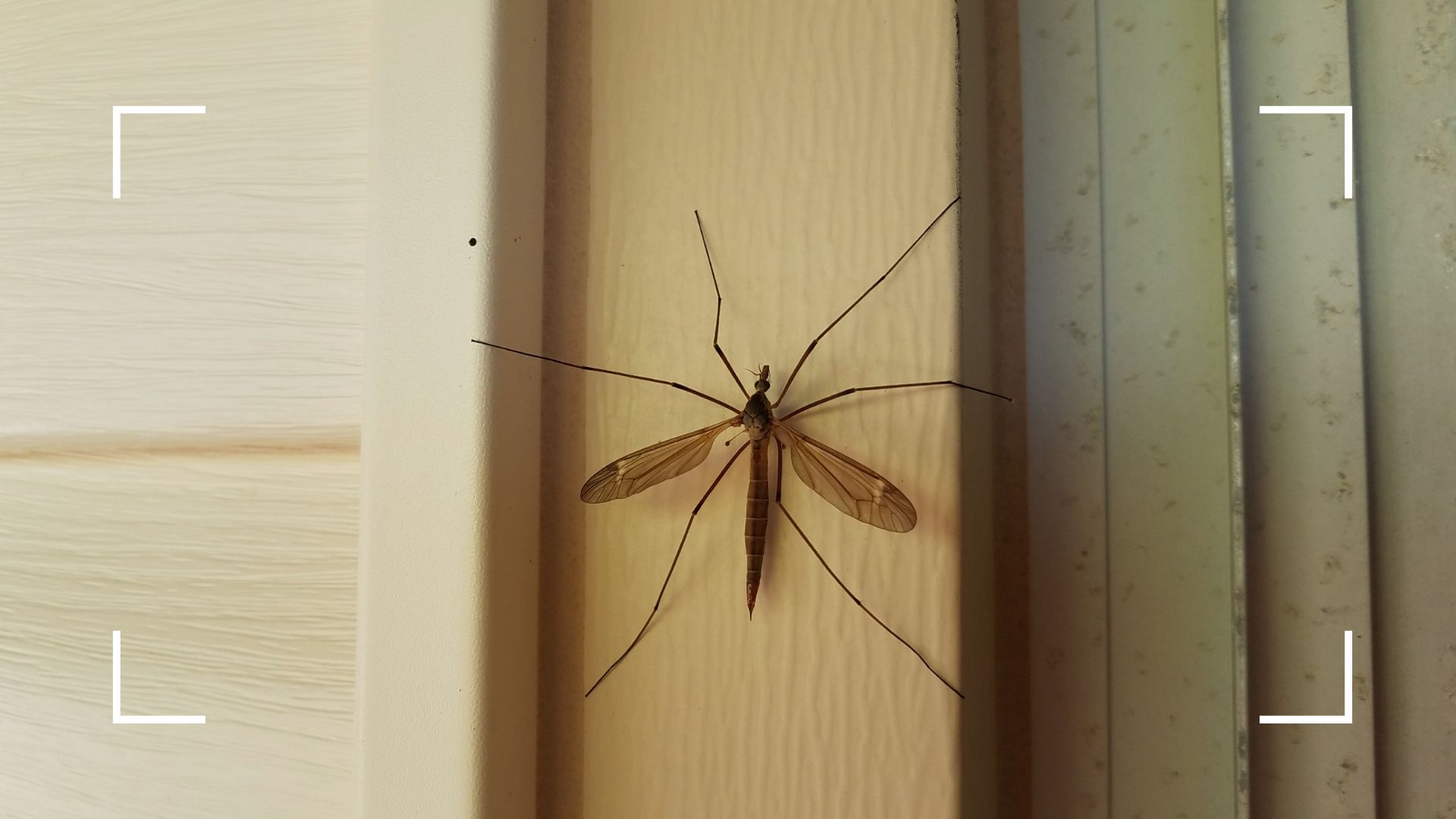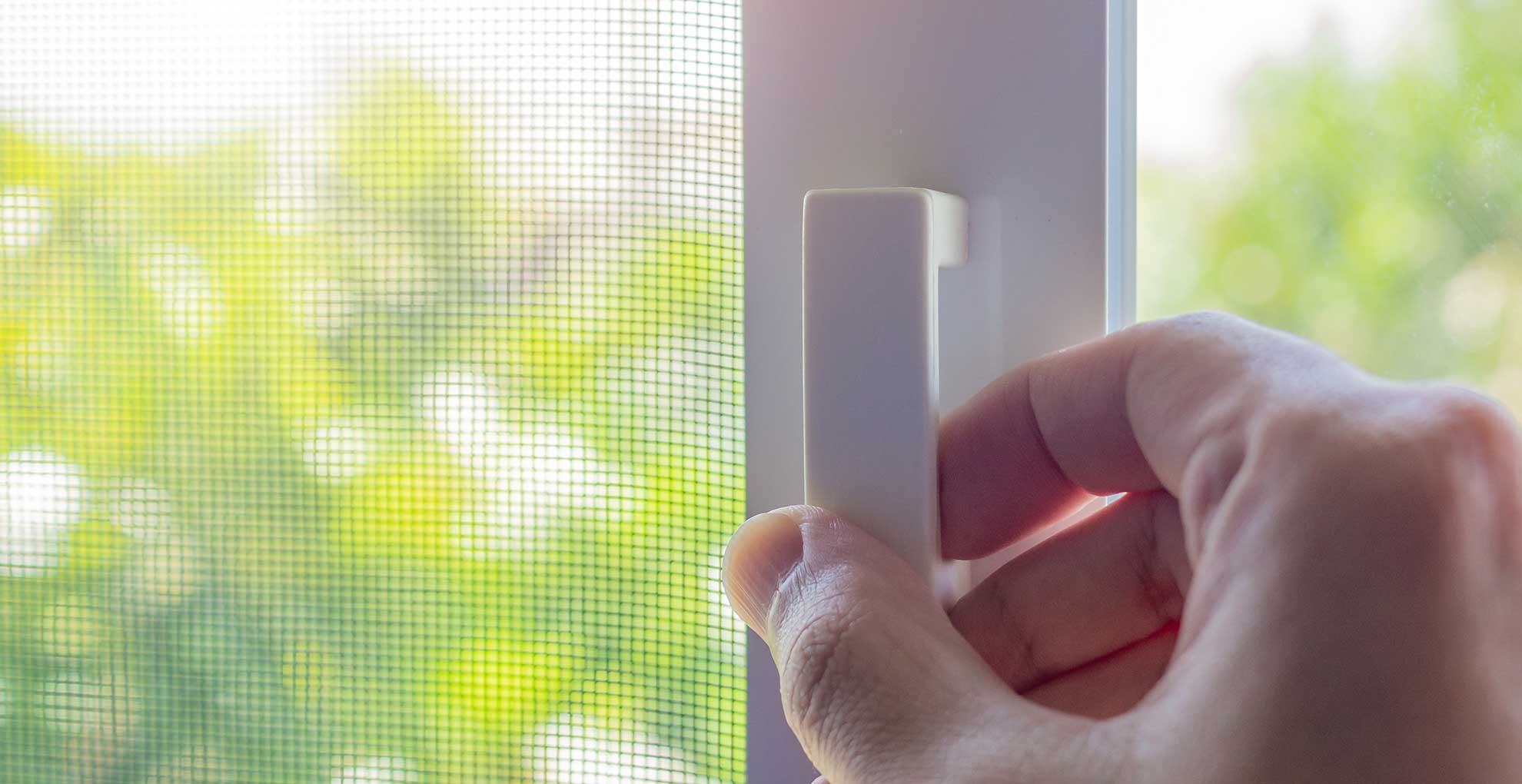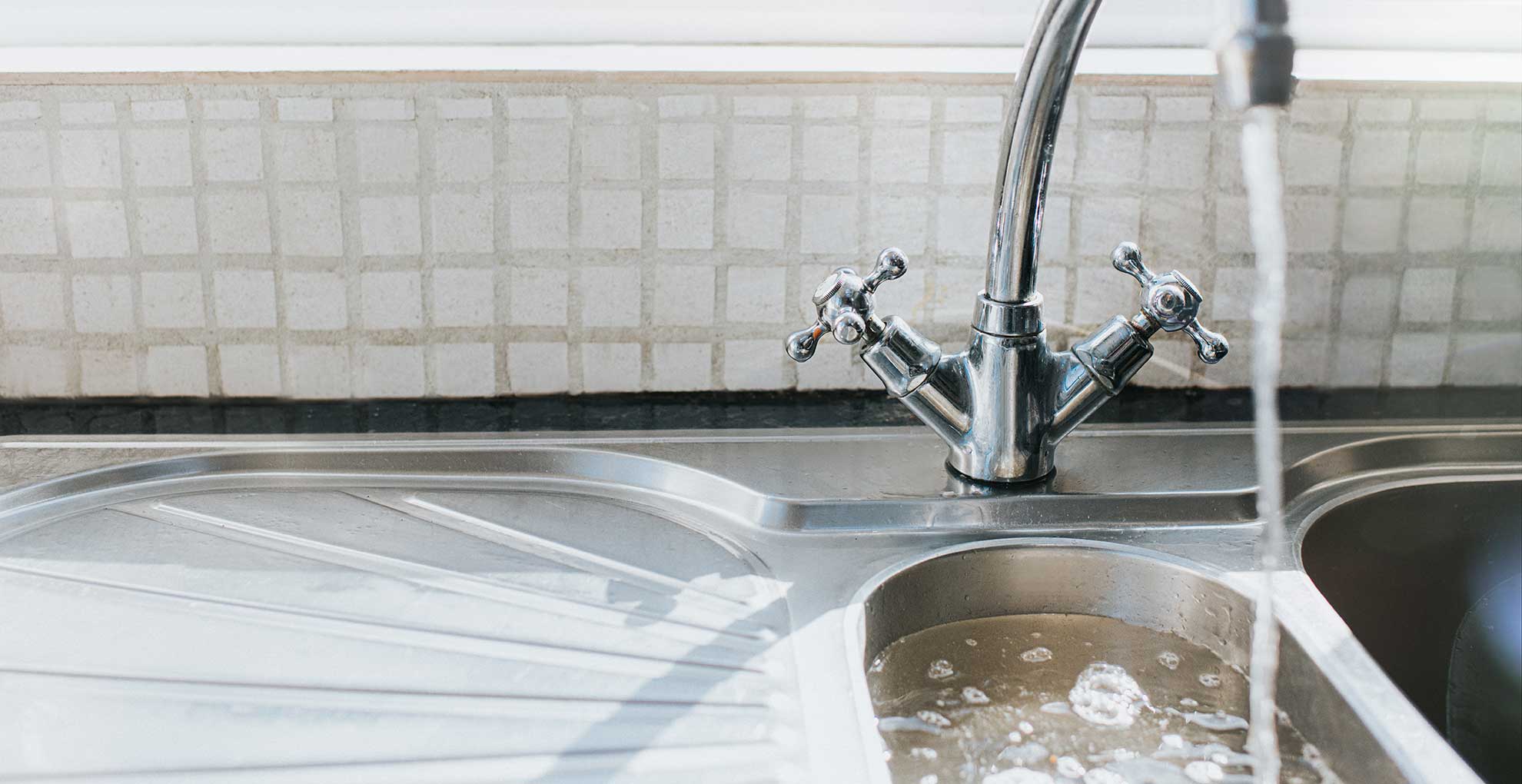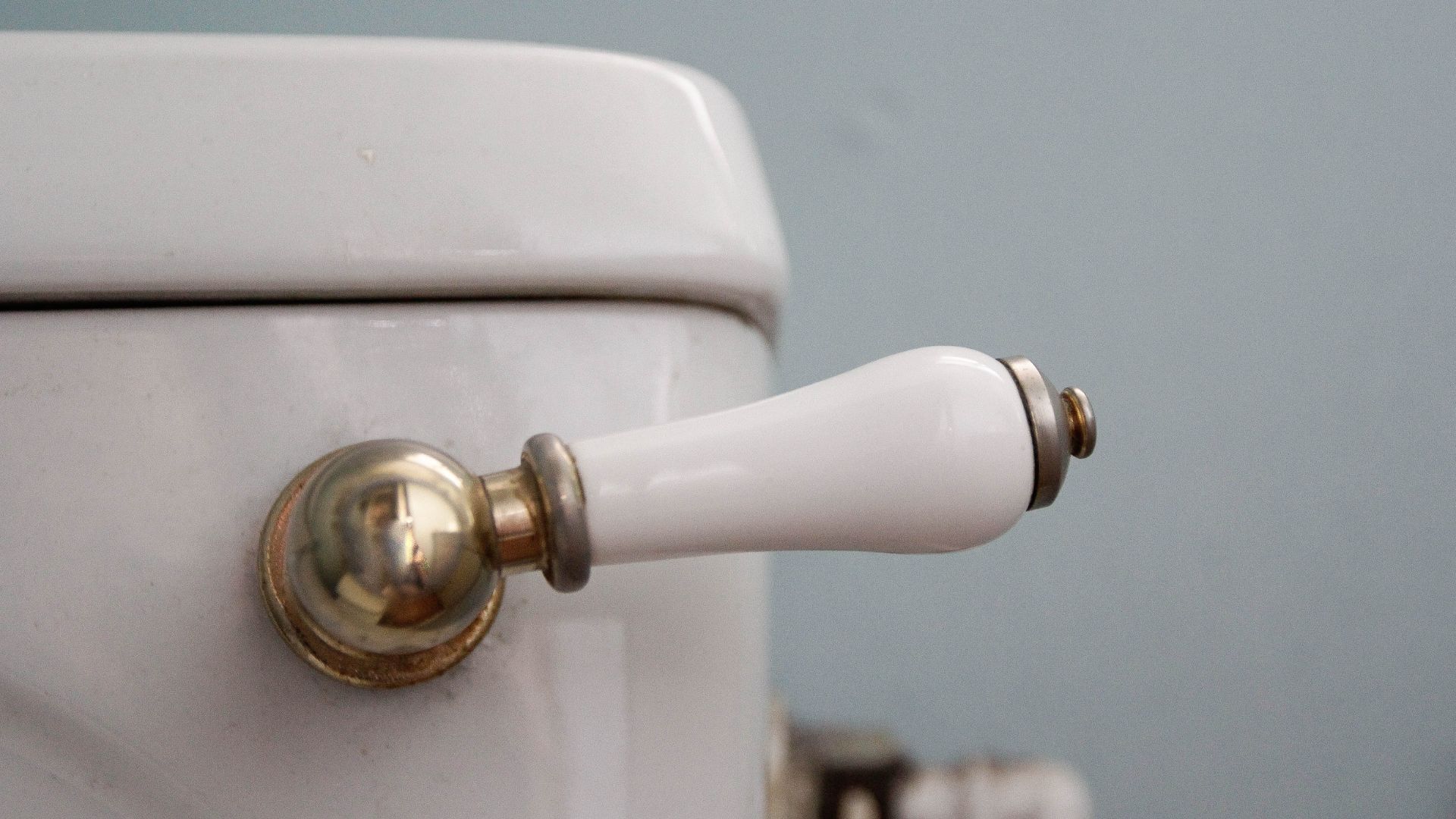
We've unfortunately reached that time of year when lots of pests start entering our homes. One of the worst culprits is the daddy long-leg, which is why it's essential to know how to prevent them from getting inside in the first place.
The reason for the sudden increase in sightings is that September is mating season for Crane flies, aka Daddy long-legs. The reason they want to get inside our homes so desperately is because of the lights that act as a sort of beacon of shelter for them in the darker winter months.
Whilst they are not harmful in the slightest, their clumsy demeanour and tendency to fly straight in your face quickly classify them as unwanted guests.
You may have already mastered getting rid of common spiders at this time of year, but daddy long-legs can fly which means they're harder to capture – similar to when you're trying to get rid of flying ants.
To help you through this Crane fly mating season, here are some expert-approved methods to keep your home free from these pests.
How to stop daddy long-legs coming in your house
"Daddy Long-legs tend to be most active at night and often sneak into the home through open windows or back doors," says Hudson Lambert, pest control expert at NOPE!.
"They do this for two reasons: firstly, as we approach the cooler weather of autumn, they are more enticed to enter the home in search of light and heat; secondly, it’s mating season in September, so if you find them in your home its probably because they are looking for a mate. Particularly as your garden matches their natural habitat, as they usually mate in grassland soil."
Here are some simple tricks to deter daddy long-legs from coming into your house...
1. Keep windows shut or covered

Prevention is really the only foolproof way to ensure you don't end up with daddy long-legs in your house, much like when it comes to getting rid of mosquitoes. But that largely means keeping all windows shut at all times, which is not always ideal in heat or when you want to improve the indoor air quality by letting rooms breathe.
"The only real way to stop them coming into the home is to keep windows and doors shut or use fly screens to prevent entering," explains Sarah Beck, operation manager at The Pest Master.
2. Mix a natural repellant
"They are a non-target when it comes to pest control so it is not something we typically treat," explains Sarah, unlike the job of keeping wasps away because can sting. However, she recommends a homemade remedy that is said to deter daddy long-legs from coming into our homes.
"A blend of white vinegar and vanilla extract, 1 cup vinegar to 1/2 cup vanilla in a spray bottle, is good for keeping daddy long-legs away." Spritz this natural solution liberally around windows to deter them from entering the house.
The vanilla extract is strong enough to cancel out the vinegar aroma to make your house smell good at the same time.
"Garlic also works quite well," says Hudson. "Try mixing it with water and storing it in a spray bottle to create a strong homemade repellent. Apply it directly to entry points, like windows or doors, to make your home less inviting."
3. Lower the lights

"The lights inside your house may attract daddy long-legs at night since they are attracted to light sources," says Jordan Foster, a pest control expert at Fantastic Pest Control. "Consequently, they may crawl toward illuminated windows and doors."
Try to limit the light visible at your windows by drawing the curtains and opting for low-level lighting in the evenings – rather than bright overhead lights. It's not just a prevention tactic too, low lighting is one of the most popular lighting trends and will save you a little on energy bills.
4. Keep on top of garden maintenance
In the garden, daddy long legs can be useful, but in the house, they are merely annoying and creepy. Keep your garden clear of clutter as a basic level of prevention and stay on top of house exterior cleanliness to make your home less tempting to daddy long legs. Because as when looking to get rid of fruit flies, clean environments are essential.
"Clean up the wood, trash, and other debris around your house's perimeter to prevent daddy long legs from getting into your home," advises Jordan. "Seal cracks and crevices around your foundation, windows, and doors, and replace broken screens to prevent them from entering."
Staying on top of your garden's tidiness will also help keep rats out of your garden and even prevent pigeons from coming into your garden to wreak havoc.
5. Remove standing water

Reduce the sources of standing water in your home to make it less appealing to the daddy long-legs. "Damp environments are known to attract daddy long legs," says Jordan. "It is common for them to hang out near water sources. They are usually found near sinks, showers, and tubs. For daddy long-legs to survive, water is essential."
Knowing how to unblock a sink yourself will also ensure there's no standing water being left accidentally. Sometimes without realising your sink can be draining slowly which will attract pests like daddy long-legs.
FAQ
Why do I keep getting daddy long-legs in my house?
Why is it this time of the year when you are more likely to have daddy long-legs in the house? "You will see the ‘Crane Fly’ aka daddy long-legs from late summer to September as this time of the year they concentrate on breeding mainly," explains Sarah.
"Early autumn and late summer tend to be when daddy long-legs are most prevalent so you may notice an increase in their presence during this time," Jordan agrees. "Having a garden or lawn with damp soil nearby can be an ideal breeding ground for them. And during hot, dry spells or heavy rains, they are more likely to enter your living space."
What smell keeps daddy long-legs away?
Certain smells keep daddy long-legs away including peppermint and lavender. Much like when trying to keep flies out of the house you can embrace essential oils to douse cloths to wipe around window frames or instead choose real-life plants and keep them on windowsills.
"Keep your corners clear of daddy long-legs with peppermint spray," suggests Jordan. "Dilute a few drops of peppermint oil with water and spray them on your garden/house or place cotton balls soaked in the oil in areas where you see spiders."
Why do I keep getting daddy long-legs in my bathroom?

The reason you keep getting daddy long-legs in your bathroom in particular is due to the bright light saturation and presence of water sources and moisture. Generally speaking, most insects are drawn to both light and water, which bathrooms offer in abundance.
To keep them out of your bathroom try to keep the windows shut when you can, switch the main lights out, ensure toilet seats are down and remove any other sources of standing water to deter daddy long-legs from seeking refuge in your bathroom.
Why not kill two birds with one stone and use peppermint oil to keep the pests away whilst also using it as a way to make your bathroom smell good?
Why shouldn't you kill daddy long-legs?
The reason why you shouldn't kill daddy long-legs, other than it being inhumane, is because they play an important role in our ecosystem.
"Daddy long-legs feed on spiders, earthworms, and other insects," Jordan explains. "In addition to live prey, they will also eat dead insects, decaying plant material, and insect eggs. Their ability to eat pests in the garden like aphids makes them beneficial. Taking away any species from the ecosystem will disrupt the balance."
They may be annoying and sometimes a little scary to some, because they are essentially flying spiders, but they are harmless and therefore pose no threat. "Daddy long-legs are not poisonous, and they do not harm humans," says Jordan. "As they cannot bite or sting, they pose no direct threat to people and pets."
"The only issue they cause really is when they feed on plants and their roots they cause patches on the lawn, they lay their larvae which live underground," Sarah adds. "This then I suppose makes them an agricultural issue."
Once you've protected your home from pesky daddy long legs, we recommend sorting your garden out to keep squirrels away. Both summer and winter provide rats will the perfect conditions to find their homes in your outdoor space so it's good to be prepared.







